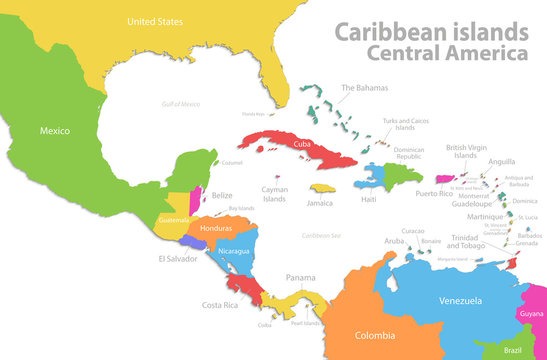Telecommunication ministers from the Organisation of Eastern Caribbean States (OECS) are meeting in Dominica amid concerns over the ongoing problems regarding intra-regional travel.
Chair of the Eastern Caribbean Telecommunications Authority (ECTEL) Council of Ministers, Dominica’s Chekira Lockhart Hypolyte used the opening ceremony to call for greater emphasis to be placed on intra-regional travel after St Vincent and the Grenadines Finance Minister, Camillo Gonsalves was unable to travel to attend the 45th meeting of ECTEL.
“I am really hoping at some point that CARICOM can address the issue of intra-regional travel and put it at the top of their agenda item because we are really struggling at this point to meet,” she said, noting that Gonsalves’ flight was cancelled “but we are really hoping that that matter can be addressed with haste”
Gonsalves, speaking by video, said that St Vincent and the Grenadines is being affected greatly through intra-regional travel.
“I want to echo your call for our brothers and sisters in CARICOM to prioritise the issue of intra-Caribbean travel. In the case of St Vincent and the Grenadines, LIAT used to move about 3,500 passengers a week in and out of St Vincent and the Grenadines.
“That number is now under 1,000 using the alternatives. So we are less than one-third of what we did in terms of intra-regional travel prior to the demise of LIAT…,” he added.
The cash-strapped Antigua-based LIAT (1974), the once-dominant carrier synonymous with inter-island travel in the Eastern Caribbean, officially ceased operations on January 24, bringing a definitive end to its nearly 50-year legacy.
“As a result of the foregoing, you are hereby notified that your employment with LIAT (1974) Limited (in administration) will be made redundant effective February 4, 2024,” said Cleveland Seaforth, the airline’s court-appointed administrator in a letter to staff.
The airline is owned by the governments of Antigua and Barbuda, Barbados, Dominica and St Vincent and the Grenadines.
Antigua and Barbuda Prime Minister, Gaston Browne, who said his government had embraced the responsibility to restructure and resurrect LIAT, “with a vision of returning the airline to the regional skies”.
He said that the Barbados-based Caribbean Development Bank (CDB) will play a critical role in solidifying the arrangement among the governments, adding that this will set the stage for finalizing the arrangement with Air Peace, a private Nigerian airline founded in 2013, “so that LIAT 2020 can begin operations, thereby securing a promising future for regional travel.”.
Browne said that in 2024, the Antigua and Barbuda government will spend an estimated EC$30 million (One EC dollar=US$0.37 cents) to “ensure LIAT 2020 Ltd has all the aircraft needed and appropriate maintenance and operational arrangements are in place for the safe, reliable, and efficient delivery of service to the people of the region.
Regarding the meeting here, Lockhart Hypolyte said that the telecommunications sector has been driving economic growth within the Eastern Caribbean and that member states must take a collective approach to develop strategies for the future of the sector within the sub-region.
“I urge all of us to approach our discussions with a spirit of collaboration and openness for establishing ECTEL as a transformative and outward-looking telecom regulator.
“Each of us brings valuable expertise, experiences and perspectives to the table and it is through constructive dialogue and cooperation that we can identify common goals and develop strategies to achieve them.
“As member governments, we are committing to creating a new and robust regulatory framework …that fosters a competitive, dynamic and consumer-centric telecom market,” Lockhart Hypolyte said, adding “we recognise the need for smart regulation that strike a balance between promoting investment and innovation”.
ECTEL was established on May 4, 2000, by a treaty signed in Grenada, by the governments of five Eastern Caribbean States, namely Dominica, Grenada, St Kitts-Nevis, St Lucia, St Vincent and the Grenadines.
ECTEL is the regulatory body for telecommunications in its member states. It is made up of three components – A Council of Ministers, a regional Directorate and a National Telecommunications Regulatory Commission (NTRC) in each member state.















